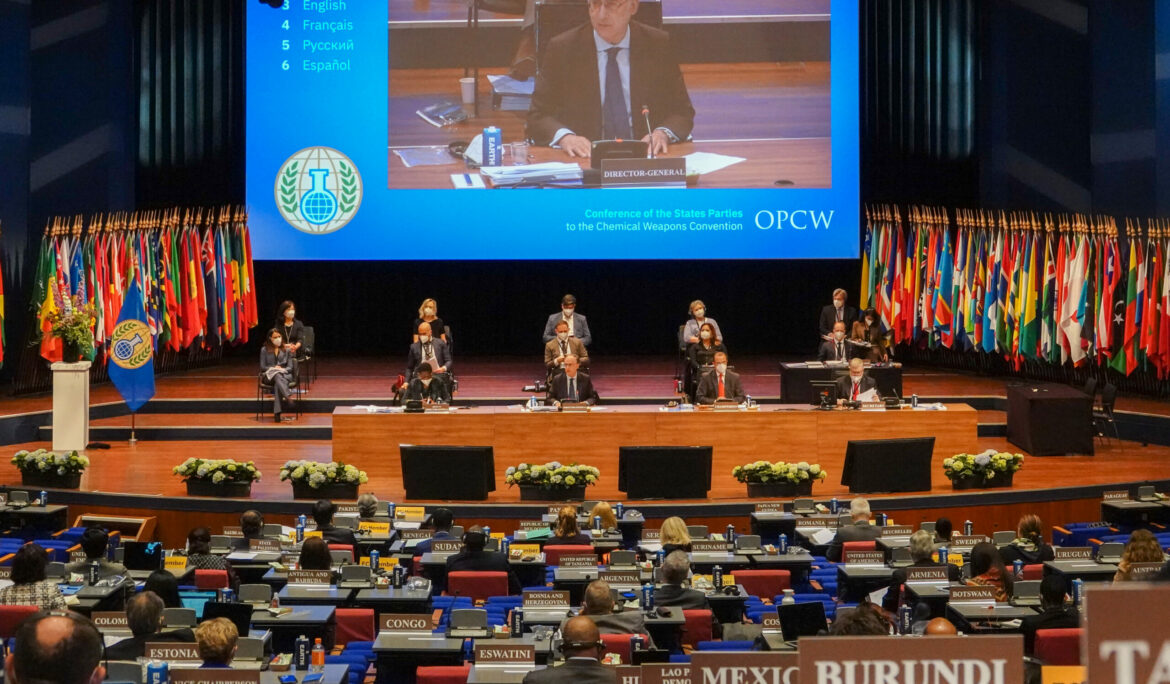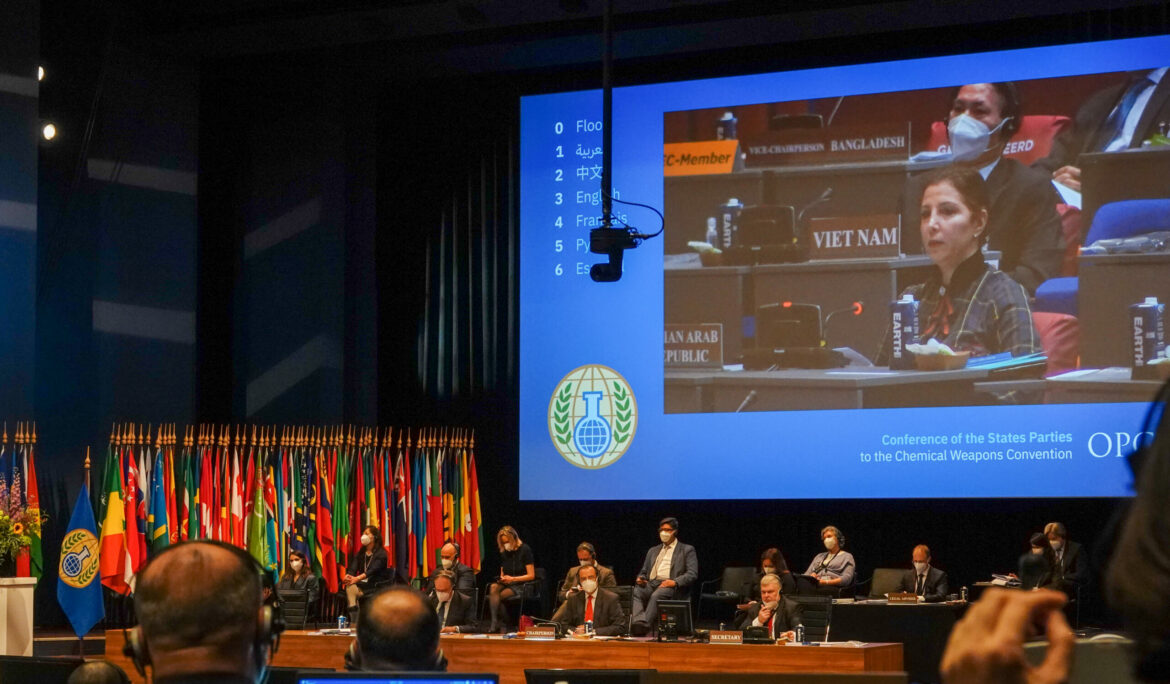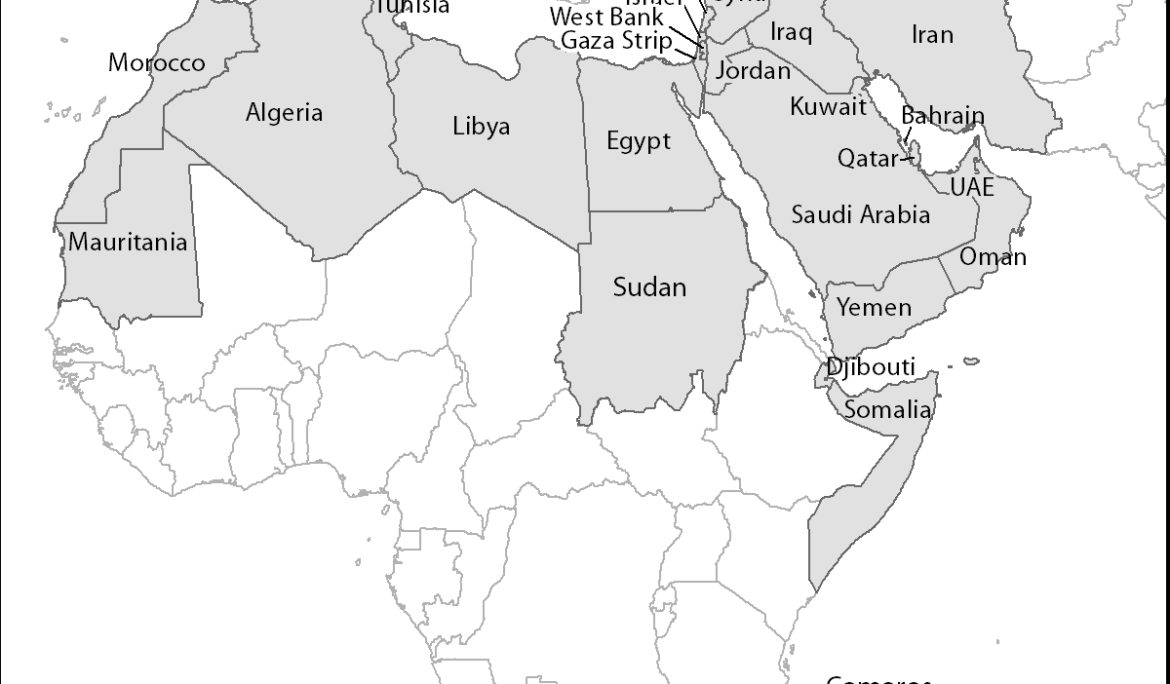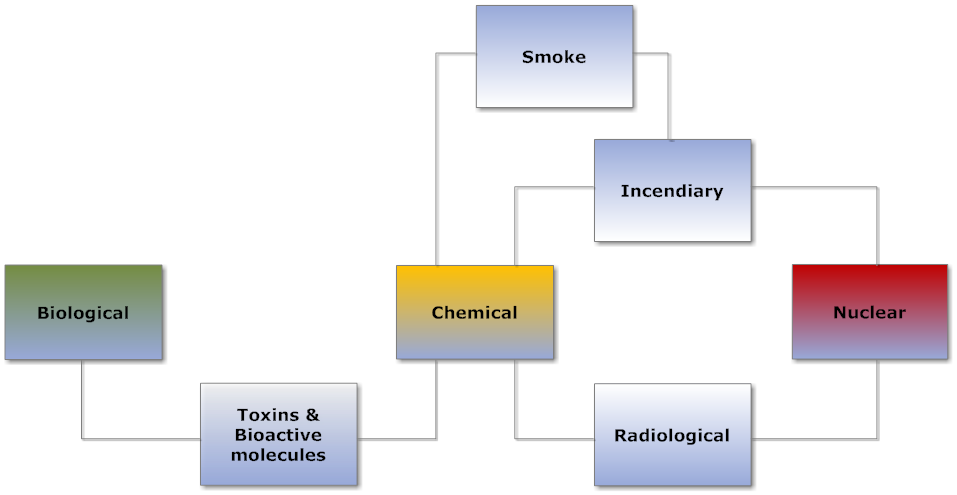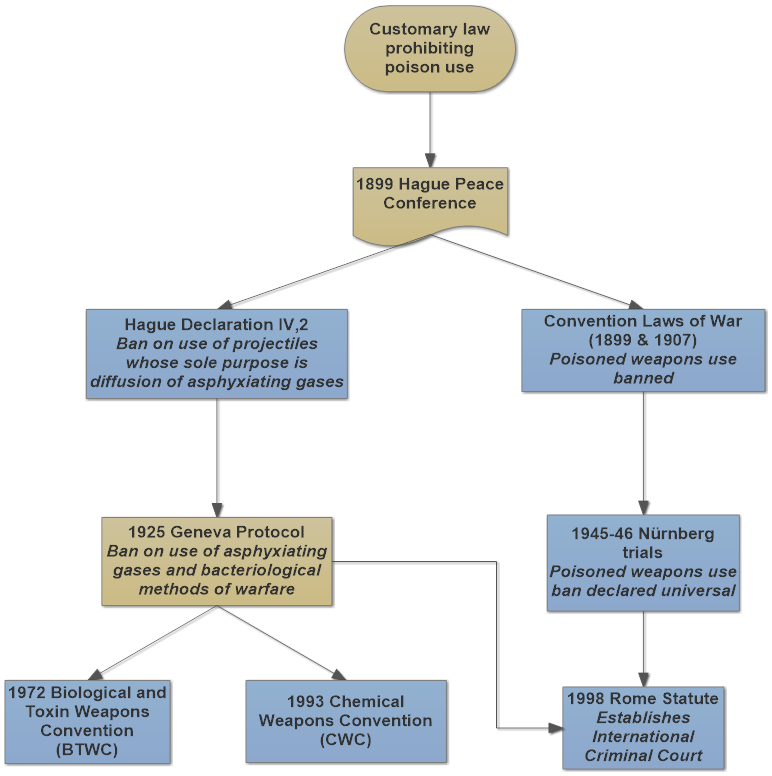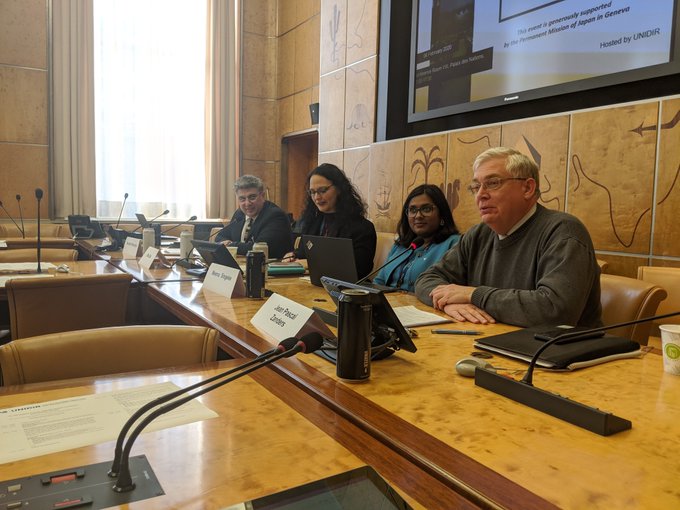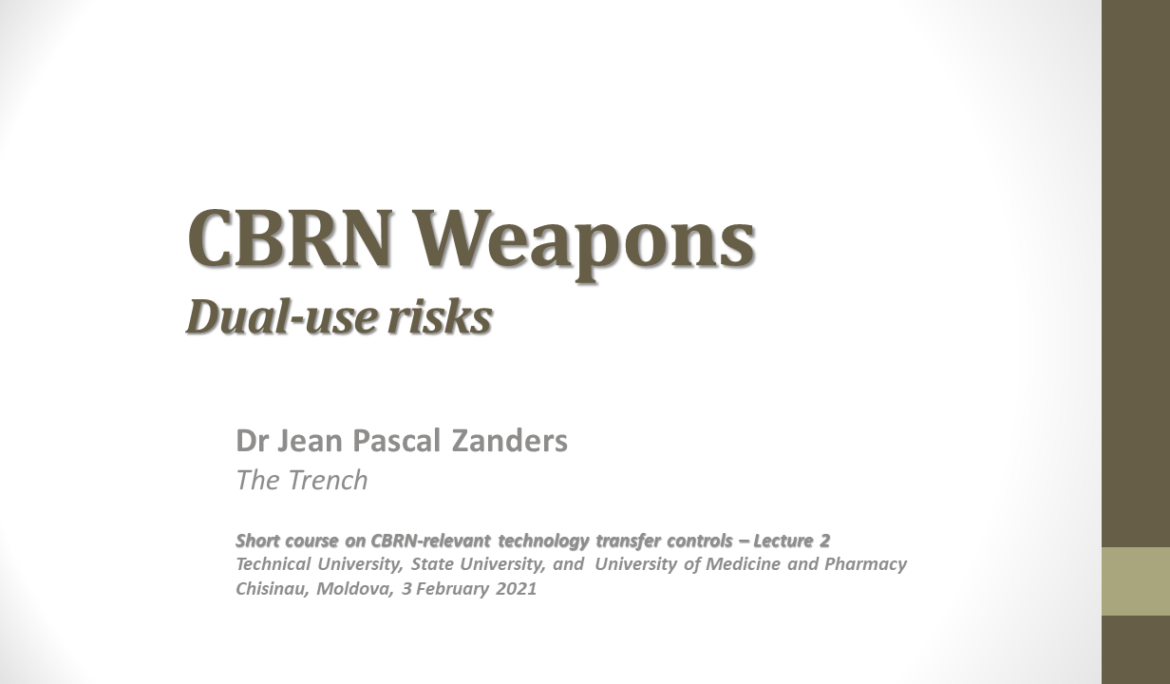‘Within the next 5 to 10 years, it would probably be possible…’
(Science and technology review under the BTWC, Part 1) The next series of Meetings of Experts (MX) of the Biological and Toxin Weapons Convention (BTWC) is due to take place between 30 August and 8 September, a year later than originally scheduled because of the COVID-19 pandemic. Of course, provided there is no fresh resurgence in the number of infections forcing fresh meeting and travel restrictions. If the MXs proceed as planned (albeit with reduced in-person attendance), the Meeting of States Parties (MSP) will likely convene before the end of the year. The pandemic has also pushed back the 9th …
Remarks at the CWCC webinar on ‘Reinforcing the Norm Against Chemical Weapons’
Remarks at the webinar Reinforcing the Norm Against Chemical Weapons: The April 20-22 Conference of States Parties to the Chemical Weapons Convention, organised by the Chemical Weapons Convention Coalition and the Arms Control Association, 10 May 2021 Director-General Arias, Ambassador Helfand, Ambassador Lingner, Participants, I am pleased to join this webinar of the global non-governmental platform, the Chemical Weapons Convention Coalition (CWCC). As a CWCC member from the start, I wish to express my gratitude to Paul Walker, who has been the engine behind the initiative for as long as it has existed, and to the states parties to …
Sanctioning Syria: An Analysis of the OPCW Vote
The Organisation for the Prohibition of Chemical Weapons (OPCW) completed its 25th session of the Conference of the States Parties (CSP) on 22 April, the 106th anniversary of the first massive use of chlorine as a warfare agent in the First World War. Due to the sanitary restrictions to contain the global coronavirus pandemic, the OPCW spread the CSP-25 over two sittings. The first one took place on 30 November and 1 December 2020. Its primary objective was the adoption of the work programme and budget for 2021, which the states parties to the Chemical Weapons Convention (CWC) could not …
Regional security and the Chemical Weapons Convention: Insights for the Middle East (Part 2)
In November 2019, the first annual meeting exploring the possibility of creating a zone exempt of non-conventional weaponry in the Middle East took place. The COVID-19 pandemic forced the postponement of the second meeting in 2020. Conditions permitting, the session is now scheduled for this autumn. Meanwhile, the conference has organised two informal workshops, the second one of which was held virtually on 23-25 February. Entitled ‘Good Practices and Lessons Learned with respect to the implementation of Treaties establishing Nuclear-Weapon-Free Zones’, the workshop’s third session looked at the core obligations governing chemical and biological weapons (CBW). It aimed to glean …
Regional security and the Chemical Weapons Convention: Insights for the Middle East (Part 1)
In November 2019, the first annual meeting exploring the possibility of creating a zone exempt of non-conventional weaponry in the Middle East took place. The COVID-19 pandemic forced the postponement of the second meeting in 2020. Conditions permitting, the session is now scheduled for this autumn. Meanwhile, the conference has organised two informal workshops, the second one of which was held virtually on 23-25 February. Entitled ‘Good Practices and Lessons Learned with respect to the implementation of Treaties establishing Nuclear-Weapon-Free Zones’, the workshop’s third session looked at the core obligations governing chemical and biological weapons (CBW). It aimed to glean …
A Middle East Zone Free from Non-conventional Weapons (4)
Part 4: Clear legal definitions at the core of the future treaty This article is the fourth in a series of blog postings exploring the opportunities and challenges facing a new series of conferences at the United Nations in New York to eliminate non-conventional arms – essentially nuclear weapons, and to a lesser extent chemical and biological weapons (CBW) – from the military arsenals in the Middle East. Why legal definitions matter By adopting Decision 73/546 on 22 December 2018, the UN General Assembly tasked the newly established conference with ‘elaborating a legally binding treaty establishing a Middle East …
A Middle East Zone Free from Non-conventional Weapons (3)
Part 3: Defining the Middle East, a loaded question In November 2019 a conference at the United Nations in New York (report here) marked a fresh round of diplomatic efforts to eliminate non-conventional arms – essentially nuclear weapons, and to a lesser extent chemical and biological weapons (CBW) – from the military arsenals in the Middle East. As indicated in the second part of this series, participants in the new conference series depart from the definition of the Middle East used by the International Atomic Energy Agency (IAEA). At the UN Institute for Disarmament Research (UNIDIR) seminar ‘The Middle …
A Middle East Zone Free from Non-conventional Weapons (2)
Part 2: Treaties governing chemical and biological weapons In November 2019 a conference at the United Nations in New York marked a fresh round of diplomatic efforts to eliminate non-conventional arms – essentially nuclear weapons, and to a lesser extent chemical and biological weapons (CBW) – from the military arsenals in the Middle East. This article is the second in a series of blog postings exploring the opportunities and challenges to ensure that the regional risks of CBW threats and use – chemical weapons (CW) were and, as I am writing, are part of conflicts in the Middle East …
A Middle East Zone Free from Non-conventional Weapons (1)
Part 1: A new process to disarm the Middle East In November 2019 a conference at the United Nations in New York marked a fresh round of diplomatic efforts to eliminate non-conventional arms – essentially nuclear weapons, and to a lesser extent chemical and biological weapons (CBW) – from the military arsenals in the Middle East. The previous initiative died in 2015 as the review conference (RevCon) of the 1968 Nuclear Non-Proliferation Treaty (NPT) failed to agree on a consensus document. The new series of annual meetings takes place outside the NPT RevCon cycle, which consists of a quinquennial …
Education on CBRN-relevant dual-use technology transfers in Moldova
The Science and Technology Centre in Ukraine (STCU) just published a summary of the short virtual course on CBRN-relevant dual-use technology transfers I taught in Moldova on 2 – 5 February. The course was another step in the project to design, develop and teach a full master’s course on export controls and technology governance for the GUAM countries (Georgia, Ukraine, Azerbaijan, and Moldova). As I described in a previous blog post, the educational initiative forms part of a larger Targeted Initiative funded by the European Commission that is implemented through the STCU and International Science and technology Centre (ISTC) in …


